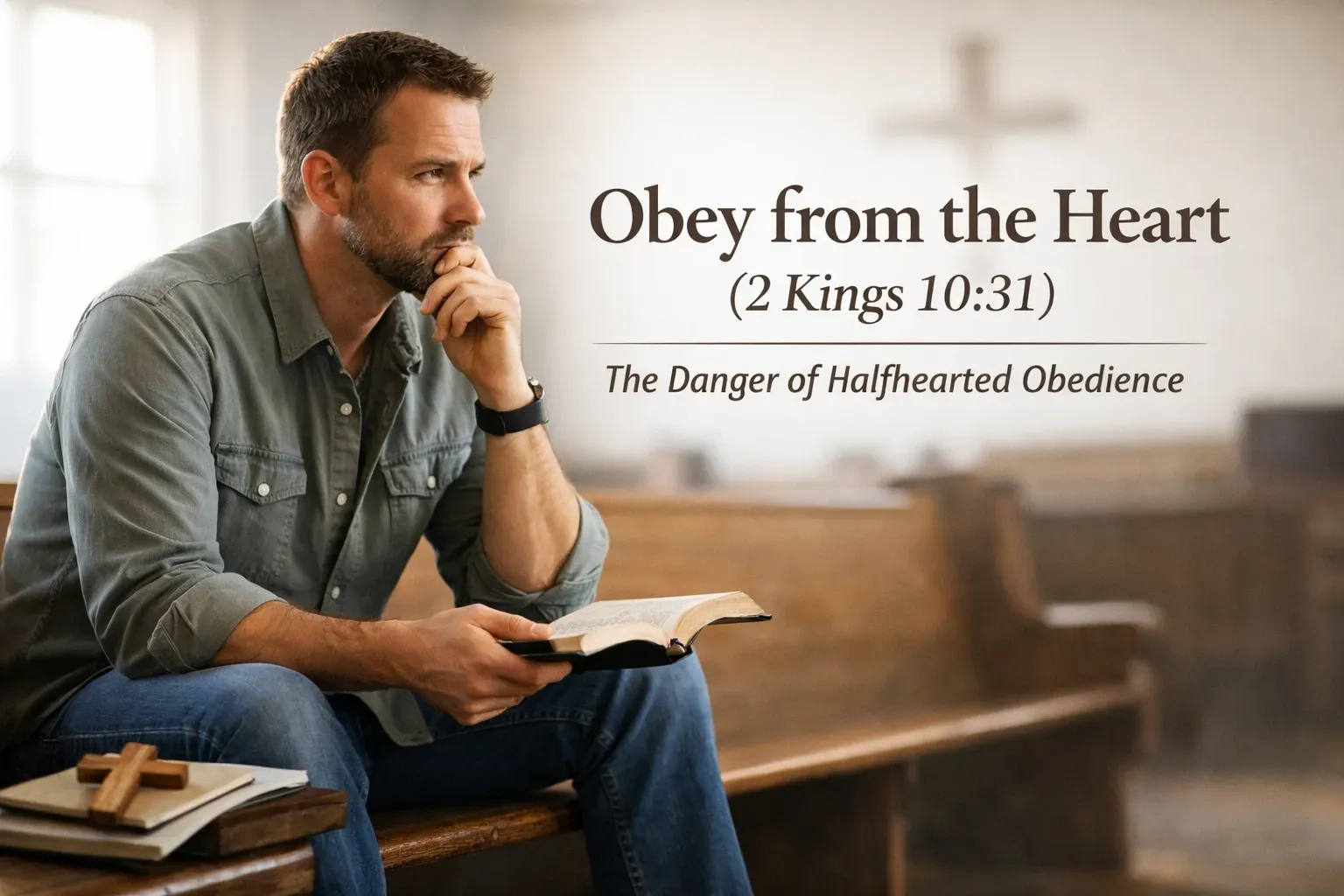Yielding to the chisel is “learning obedience from what we suffer.”
Today's gleanings

often the concept of the extent of satanic and demonic activity in the life of a believer is circumscribed and inadequate. It tends to be theological and theoretical rather than biblical and practical.
Merrill Frederick Unger, What Demons Can Do to Saints (Chicago, IL: Moody Publishers, 1991), 13.
************************
Our Lord plainly intimated that Satan is a king and presides over a kingdom (Matthew 12:26). As a potentate reigning over the realm of spiritual darkness, Satan extends his sway over the evil angels or demons. Through these “principalities, powers, rulers of the darkness of this world and wicked spirits in the heavenlies” (Ephesians 6:12), he exerts dominion over the fallen human race. As men open the door to him by sin and rebellion against God, he enters to dominate and enslave.
Merrill Frederick Unger,
What Demons Can Do to Saints (Chicago, IL: Moody Publishers, 1991), 14–15.
************************
Satan’s malignant subtlety was directed against man because the evil one desired to frustrate the divine plan and enslave the human race. This he accomplished, at least to a degree, by the temptation and fall of man.
But Satan did not fully reckon on God’s gracious program of redemption in Christ. He failed to count on its final outcome in effecting his own undoing and that of the rebel angels and wicked men who would follow him (Matthew 25:41; Revelation 20:11–15).
Satan in Scripture revelation is presented as irremediably confirmed in rebellion against God. He is also portrayed as unchangeably dedicated to doing as much damage as possible to mankind, especially the redeemed. His attack upon the saints is relentless and implacable. He opposes them as he opposed Christ when Christ was upon the earth. The saints represent his ultimate destruction, as Christ does, because they are united to Christ and share His triumph over him and his hosts (1 Corinthians 12:12; Ephesians 1:20–23; Revelation 20:1–3, 10).
The saints must realize that they are the bull’s-eye, as it were, against which Satan and his demon helpers aim their most fiery darts. They constitute Satan’s deadliest foes and the greatest threat to his authority and power. This is why saints dare not be oblivious of Satan’s malignity nor “ignorant of his devices” (2 Corinthians 3:11).
Merrill Frederick Unger, What Demons Can Do to Saints (Chicago, IL: Moody Publishers, 1991), 15–16.
************************
Satan always knows his foes. He is thoroughly acquainted with them and is quite aware of those who fall to his strategies and are consequently comparatively harmless. He also knows those who recognize and count on their position in Christ and who find and fulfill God’s will for their lives. These saints are what the devil fears most, for they constitute the deadliest threat to his plans and ambitions.
It is against the latter group of saints that Satan launches his most subtle attacks. Protected with the full armor of God, they are endued with God’s full power and have complete victory over Satan and his minions. Therefore Satan does his best to lure them away from trusting in the impregnable fortress of their position in Christ.
The evil one delights to see a saint become occupied with what he is or does in himself rather than with what he is or does in his position in Christ. This is tantamount to leaving the protection of the mighty fortress God has provided in Christ for the perils of the unprotected open field.
Exposed and unprotected in this manner, the Christian arouses little terror as far as Satan and demonic powers are concerned. And little wonder! The Christian is a pushover for evil powers when he tries to face them in his own strength. It is the omnipotent power of God that Satan dreads, and that power only becomes available to the believer as he counts on what Christ has done for him and is waiting to do through him in response to his faith.
This attitude of confidence in what he is in union with Christ expresses itself in what the believer thinks, says, and does. In this radiant atmosphere of faith in his crucified, risen, and ascended Lord, the believer’s every thought, word, or deed becomes a terror to the enemy. Whether he prays, witnesses, worships, or just discharges the everyday duties of life, the believer who centers his faith in His divine Savior and what he is in Him is the one thing that causes the powers of darkness to tremble.
Merrill Frederick Unger, What Demons Can Do to Saints (Chicago, IL: Moody Publishers, 1991), 18–19.
************************
Through halo-crowned idolatry the devil seeks to turn Christians away from complete allegiance to God to some form of devotion to another object of worship, some other “god” under the guise of some thing or person, notably one’s own self.
So rampant is this peril that the apostle John warns the children of God to be ever on the alert against it. Constantly the believer must be aware of this wile of the devil. The apostle John realized how God’s people are continually assaulted by Satan with this trick.
Merrill Frederick Unger, What Demons Can Do to Saints (Chicago, IL: Moody Publishers, 1991), 23
************************
Demon activity is responsible for some physical, emotional, mental, and spiritual problems, as the Bible clearly teaches. But this is not to conclude by any means that all such problems have a demonic origin (cf. Matthew 4:24). For example, in demon-ridden China of the nineteenth century the natives had no difficulty differentiating between mental disease and demon-possession. Dr. Alfred Lechler, a German psychologist, stresses the need to distinguish between the diseased and the demonic. In this connection he shows the difference between schizophrenia, epilepsy, depression, neurosis, psychopathy, senile dementia, and the demonic. Christians must exercise every precaution to avoid falling prey to Satan’s two popular tricks of either seeing Satan and demons in nothing or else seeing them in everything.
Merrill Frederick Unger, What Demons Can Do to Saints (Chicago, IL: Moody Publishers, 1991), 25–26.
************************
God has allowed him and his demons a circumscribed sphere of operation in the natural realm in which man lives. This means that, under certain conditions, the powers of darkness can take over and transcend the laws of the natural realm by the higher laws of the spiritual realm (cf. 2 Thessalonians 2:9; Revelation 13:13).
Merrill Frederick Unger, What Demons Can Do to Saints (Chicago, IL: Moody Publishers, 1991), 27–28.
************************
It is this central truth that Satan and demons attack. If it is denied or distorted, all the great truths that proceed from it are denied or distorted.
Merrill Frederick Unger, What Demons Can Do to Saints (Chicago, IL: Moody Publishers, 1991), 30.
************************
Remember, if there is one thing on earth we can be sure of, it is this: The Father desires to have us filled with His Spirit and He delights to give us His Spirit.
************************
The God who entrusted them with the work and made it so largely dependent on them, gives them authority to appeal to Him for laborers to help, and makes the supply dependent on their prayer.
How little Christians feel and intercede for the need of laborers in the fields of the world that are so white for harvest. How little they believe that our labor supply depends on prayer and that prayer will supply as much as is needed (Luke 11:8). It is not that the dearth of labor is not known or discussed, or that efforts are not sometimes put forth to supply the need. But how little the burden of the sheep wandering without a Shepherd is really carried in faith that the Lord of the harvest would send forth laborers in answer to prayer. There is no solemn conviction that without this prayer fields ready for reaping will be left to perish. But these are vital truths.
So complete is the surrender of His work into the hands of His church, so dependent has the Lord made himself on them as His body through whom alone His work can be done, and so real is the power that the Lord gives His people to exercise in heaven and on earth, that the number of laborers and the measure of the harvest actually depends upon their prayers.
What a solemn thought! Then why do we not obey the injunction of the Master more wholeheartedly and cry more earnestly for laborers? There are two reasons: First, we lack the compassion of Jesus that gave rise to this request for prayer. When believers learn that the Father’s first commandment to His redeemed ones is to love their neighbors as themselves and to live entirely for God’s glory, they will accept the care and concern for the perishing as the charge entrusted to them by their Lord. By accepting the lost not only as a field of labor, but as individuals in need of loving care and compassion, the cry will ascend with an earnestness previously unknown: ‘‘Lord! Send forth laborers.’’
Andrew Murray,
Teach Me to Pray (Grand Rapids, MI: Bethany House, 2002).
************************
Yielding to the chisel is “learning obedience from what we suffer.” Our circumstances don’t change; we change. The “who” of who we are is transformed, like a form unfolding, into his likeness with ever-increasing glory.
************************
But please, God, destroy anything in me that you are pleased to carve away. In your hands, what falls away is unimportant. If I am to delight in intimacy with you, I must “be ye holy as you are holy.” It’s needed. Especially since I’m headed for heaven, the holy habitation of holy inhabitants.
Joni Eareckson Tada,
When God Weeps: Why Our Sufferings Matter to the Almighty (Grand Rapids, MI: Zondervan, 2010).
************************
The unique task of missions is to establish a viable growing church movement among every tribe, tongue, people and nation on the earth.
Ruth A. Tucker, From Jerusalem to Irian Jaya: A Biographical History of Christian Missions, Second Edition (Grand Rapids, MI: Zondervan, 2004), 454.
************************
When we seek to correct the wrong done to us, we set ourselves up as a judge. The unforgiving servant in Matthew 18 did this when he put his fellow servant in jail. In turn this unforgiving servant was turned over to the tormentors, and his family sold, until he should pay all.
John Bevere,
The Bait of Satan, 20th Anniversary Edition (Lake Mary, FL: Charisma House, 2014), 151.
************************
“Bitterness is unfulfilled revenge.”
John Bevere,
The Bait of Satan, 20th Anniversary Edition (Lake Mary, FL: Charisma House, 2014), 152.
************************
The Bible says a person who does not pursue peace by releasing offenses will eventually become defiled. That which is precious will end up being corrupted by the vileness of unforgiveness.
John Bevere,
The Bait of Satan, 20th Anniversary Edition (Lake Mary, FL: Charisma House, 2014), 153.
************************
once I direct them to the passage I am speaking from, I stay there. I have found it time-consuming and a hindrance in communication to have the audience turn to a second passage. If I make reference to another passage, I choose to explain it instead of having them turn to it.
R. Larry Moyer, Show Me How to Preach Evangelistic Sermons, Show Me How Series (Grand Rapids, MI: Kregel Academic & Professional, 2012), 77.











